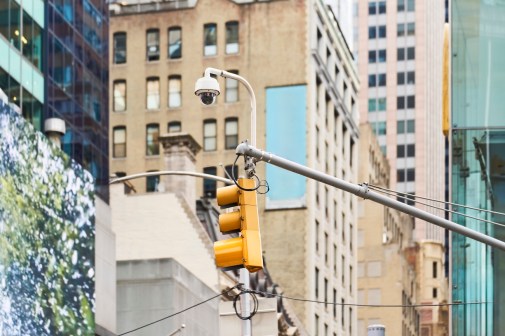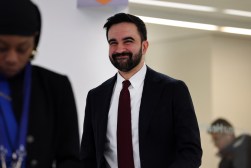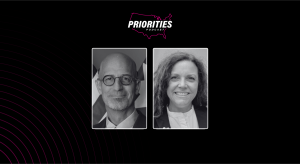Banning innovation: Why New York City’s CTO is calling for new vocabulary
I take issue with the word innovation. I have banned its use in our office.
Innovation without more specific strategy is meaningless. This is especially important at a moment when we are being flooded with emerging technology. We must concentrate on what produces measurable results and not lose sight of ideas that could be transformative. I want my team focused on concrete goals: modernizing government, improving existing technology and creating breakthroughs that lead to meaningful change.
Modernizing Government
I know firsthand that we have a lot of doers in city government. People that are willing, capable and sometimes obligated by their job descriptions to modernize by replacing outdated legacy systems, improving efficiency and/or effectiveness. These people are “innovators” and have been for many years. I, and others, should provide them with the air-cover to drive change and progress by implementing modern technology that is tied to impact.
The doers making this happen don’t have to work in the “department of new things,” and more often they won’t. They are close to the action. They won’t wait for the secret agent of innovation to appear in the lobby with a superhero belt of tech gadgets ready to make the magic happen. I’ve seen it, and that approach often doesn’t work. We need to promote and improve cross-agency collaboration, as many with a desire to drive change would be energized by the freedom and support to do so.
Improving existing technology
Innovation is one of those ambiguous terms defined in the eye of the beholder. Just like describing something as “good” or “better,” it’s all relative. Some of the doers in government have a special ability to take something from “good” to “better” through iteration of current technology. They must be empowered to take measured risk, because not everyone will immediately follow. This is often due to fear of change or the fact that they just can’t see over the horizon.
Iterative projects are somewhere between replacing legacy systems and revolutionary breakthroughs. These improvements often are moving to the cloud or developing new systems on open-source platforms. These are important to keep the organization on pace with the change of tech, public expectations, and avoid growing the backlog of things that become ineffective.
Breakthroughs
Finally, there are breakthroughs: bold ideas whose immediate value isn’t totally clear, but that have the potential to change our world.
The exponential acceleration of change in technology means these ideas are right around the corner. Meanwhile, government’s adaptability has not kept pace. If you’ve complained about federal, state or local government’s inability to keep up with the needs of the people, prepare yourself to be more frustrated — unless we have a breakthrough of our own.
Emerging technologies like autonomous vehicles will have impact on more than our taxi drivers and pedestrian safety. These breakthroughs will change the world around them beyond their intended disruption. What will a city do with lanes of asphalt no longer needed for street parking? Plant grass? In NYC, that would likely create the largest urban park on earth, an idea which many would consider fantastic! How about the revenue that goes with it? When those vehicles start flying, it may eliminate pedestrian-vehicle collisions, and maybe roads altogether.
In New York City, my office is working on plans to better focus our efforts on modernization, iteration, and breakthroughs that will change our city. We will improve how we invest our resources to play our role more effectively. We’re thinking about physical and virtual experimentation, focused and responsible risk-taking, and meaningful measurement of outcomes, partnering with agencies across the city to maximize the civic impact for New Yorkers.
I encourage cities around the world to be thoughtful about the use of innovation and instead develop a set of strategies that are more precise and meaningful. The impacts are profound — in both directions. So profound, they require the same brilliant thinking in government to become a city that can handle it well and protect the values and people of its community in every corner of the world, beginning right here in New York City.






